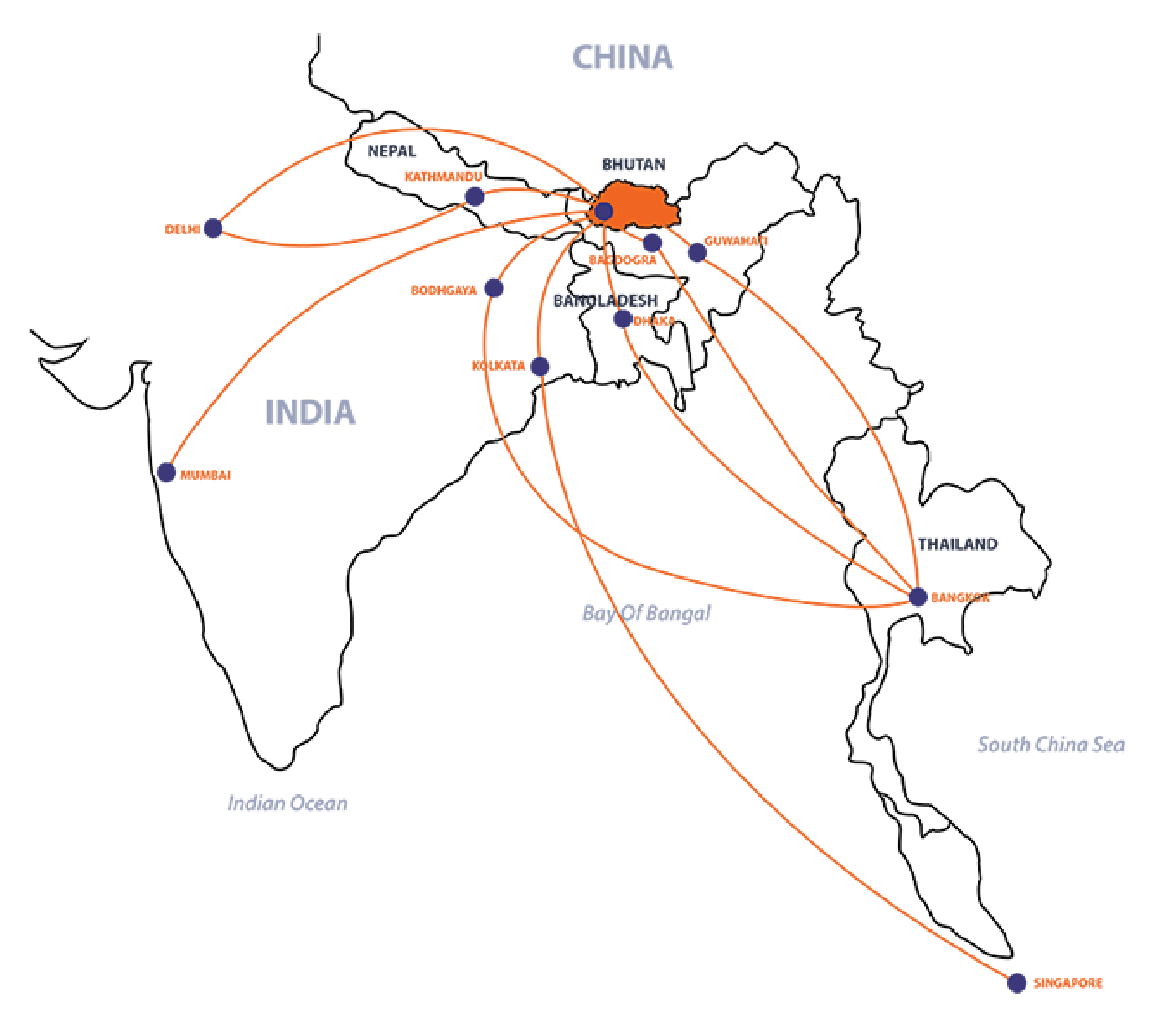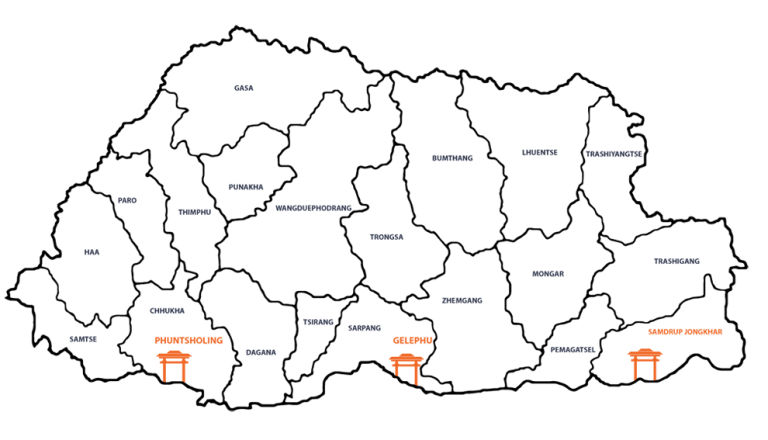Travel Info
Travel Informations
Bhutan Visa
A visa is required for most travelers to enter Bhutan. Your visa can be processed us. The process is straightforward. Submit a copy of your passport’s photo page (valid for at least 6 months) we ll handle the visa application on your behalf, typically processing it within 3 working days.
For citizens of India, Bangladesh, and the Maldives enjoy visa-free entry. Simply present your valid passport (at least 6 months validity) or a voter ID card (Indian nationals only) at the port of entry to obtain a free permit.
Once approved, you’ll receive a visa clearance letter via email. Upon arrival in Bhutan, present this letter to immigration officials. Your Bhutan visa will be directly stamped into your passport, with validity based on your itinerary.
Accommodation
We offer a variety of accommodation options:
Hotels: Choose from government-approved hotels ranging from cozy 3-star options to luxurious 5-star havens like Amankora or Taj Tashi. Expect amenities like TVs, room service, and Wi-Fi in most hotels. (Note: a supplement may apply for luxury hotels).
Farm Stays: Immerse yourself in rural life by staying in a farmhouse. These family-run accommodations offer a taste of traditional Bhutanese farming practices alongside delicious home-cooked meals and warm hospitality.
Camping: For when you are on multi-days hikes and treks. Your guide and support team will ensure a comfortable experience, complete with cooks and packhorses to handle logistics.
Food
Bhutan’s cuisine tantalizes taste buds with its fiery character. Chilies are popular, starring in most dishes. Be prepared to adjust the spice level to your preference – just let your server know!
Some popular dishes in Bhutan include: Ema Datshi, the national dish, features fiery chilies balanced by savory cheese; Kewa Datshi offers a creamy mixture of cheese and potatoes; and Shamu Datshi comes with fleshy mushrooms simmered in rich cheese sauce.
Don’t miss the signature local rice with lentil stew (Dhal).
Dress Code
The national dress, Gho for men and Kira for women, is mandatory for Bhutanese in official settings. Tourists have more flexibility and can choose to wear anything within decorum:
• When exploring towns, feel free to wear comfortable clothing. However, remember modesty is key when visiting Dzongs (fortresses), monasteries, and temples.
• Opt for long pants and collared shirts with sleeves for both men and women. Shoulders and legs should be covered.
• Hats and shoes are considered disrespectful inside religious sites. Remove them before entering. Feel free to carry a jacket for cooler areas.
Consider purchasing a Gho or Kira to experience Bhutanese attire first-hand. Locals will appreciate the gesture and may even assist you in wearing it properly.
Weather
Bhutan’s climate varies by season. From September until March, expect chilly weather with frost and potential snowfall above 3000 meters. So, pack warm clothes. Between June and August, expect warmer temperatures with monsoon rains.
Precautions
Bhutan is a very safe country to visit, but a few general precautions to s ensure a smooth visit:
• Secure Your Belongings: Keep your passport, camera, wallet, and purse close at hand, especially while sightseeing. Avoid leaving them unattended in vehicles.
• Hydrate Safely: Stick to bottled water, as most tap water is untreated. Bottled water is readily available and affordable.
• Respect the Law: Bhutan strictly enforces regulations on drugs and tobacco. Cooperate with any inspections and avoid exceeding the tobacco limit.
Tour Cancellation & Refund Policies
Full refund will be processed for tour cancelled at least 45 days prior to arrival date. However, there will be US $500 service charge.
There will be a 50% penalty on total cost for all tours cancelled 31 – 44 days prior to arrival date.
The penalty applies as the company is subject to hotel cancelation fees.
No refunds will be processed for trips canceled less than 30 days prior to arrival date.
No refunds will be processed for trip shortened due to unforeseen reasons prior to arrival in Bhutan.
In addition, any costs and services for additional days in Bhutan due to unforeseen reasons such as flight delays will not be covered by the company. The individual will be responsible to cover for personal expenses.
Druk Air Cancellation Policies
– 90% refund permitted for the ticket cancelled more than 30 days from the first date of travel.
-75% refund permitted for the ticket cancelled from 10-29 days from the first date of travel.
-50% refund permitted for the tickets cancelled from 04-09 days from the first date of travel.
-03 days or less no refund permitted.
-Rescheduled ticket not permitted for refund.
-For tickets purchased at discount fare, you will only be refunded airline tax. No other refunds are applicable.
-No refunds will be processed for missed connections or “no show” at the airports.
-Additional fee of US $25 is levied for every date change once the tickets have been issued.
Tariff
The minimum USD $330 daily package covers the following services.
A minimum of 3 star accommodation (4 & 5 star is subject to additional premium).
All 3 meals (Breakfast, lunch and dinner). However, it does not cover beverages.
A licensed English-speaking tour guide for the extent of your stay.
All internal transport (excluding internal flights)
Camping equipment and haulage for trekking tours (personal baggage limited to 20kgs)
Inclusive of one museum entrance fee, any additional museum entrance fees will not be covered by the company.
All internal taxes and charges
A Sustainable Development Fee (SDF) of $100. This fee goes towards free education, free healthcare, poverty alleviation, along with the building of infrastructure.
In addition to the minimum daily fee, there will be a one time visa fee of USD $40 per person.
The daily minimum fee includes an English speaking guide. If you require a guide who speaks your native language, there will be an additional fee of USD $100 per day.
The minimum daily package for tourists is USD $330 per night per person.
On the departure day, the company will only provide breakfast. Any additional meal will have to be covered by the individual.
The Royal Government of Bhutan sets minimum selling prices for packages to Bhutan. These must be paid in US dollars prior to arrival in Bhutan.
Accessibility : by Air
By air: The most convenient way of entering Bhutan is by Druk Air and Bhutan Airlines. Our national airlines flies several times a week between its destinations, but flight timings and frequency vary according to season. Paro is Bhutan’s international airport Domestic flight services Paro-Yongphula (Tashigang), Bumthang and Gelephu.
As flights can be delayed due to weather conditions (particularly during the summer months), it is advisable to allow 24 hours before any onward connection.
The following stations are connected with both the Airlines (Druk Air and Bhutan Airlines).
Druk Air
Druk Air has a fleet of modern Airbus A-319 and ATR planes. Druk Air flies in and out of Bhutan from:
- Bangkok (BKK – Thailand)
- Delhi (DEL – India)
- Mumbai (BOM – India)
- Kolkata (CCU – India)
- Bagdogra (IXB – India)
- Gaya (GAY – India)
- Guwahati (GAU – India)
- Kathmandu (KTM – Nepal)
- Dhaka (DAC – Bangladesh)
- Changi (SIN – Singapore)
Bhutan Airlines
Bhutan Airlines began its international operations in October 2013. It’s sectors to Bhutan include:
- Bangkok (BKK – Thailand)
- Delhi (DEL – India)
- Kolkata (CCU – India)
- Kathmandu (KTM – Nepal)

Accessibility : by Land
If you wish to travel overland, you can enter and exit Bhutan through its southern gateway of Phuentsholing into the Indian state of West Bengal. It is approximately a five hour drive from Thimphu. The nearest airport is at Bagdogra, located approximately four hours by road from Phuentsholing. This border point is an ideal junction for those wishing to combine their exploration of Bhutan with the Indian states of Sikkim and West Bengal.
For those who would like to journey across Bhutan, there is an exit only border crossing at Sumdrup Jongkhar in southeast Bhutan to India. The closest airport is 110 km away in Guwahati. From here you a number of destinations you can fly on to including Delhi, Bombay, Kolkata and Bangkok. This is convenient for those flying into Paro in the west and touring across Bhutan without back tracking.

The SDF Levy for regional tourists is set at Nu 1,200. However tourists visiting 11 of the 20 districts which are Trashigang, Lhuntse, Trashiyangtze, Mongar, Samdrupjongkhar, Pemagatshel, Zhemgang, Tsirang, Sarpang, Dagana and Trongsa will be exempt of SDF for both tariff paying tourists and regional tourists.
Entries via Gelephu and Samdrupjongkhar will also be open to regional tourists.
Regional tourist children under the age of 5 do not have to pay the levy and those between 6 and 12 only need to pay 600.
The rule shall be effective from July 2020.
DOs
• While visiting temples, monasteries and other religious institutions, dress modestly and respectfully. Singlet and miniskirts should be avoided while visiting religious sites. Also, footwear, hats should be removed when entering altar rooms.
• Always walk clockwise when visiting religious monuments.
• Silence should be maintained at heritage and religious sites and monuments.
• Buying and selling of any antique is prohibited. For air travellers, to carry back handicrafts purchases in Bhutan, certificates of 'non-antique items' should be obtained in advance from the Department of Culture counter located at Paro airport.
• Please be informed of tour cancellation policy and refunds.
• Be fully ensured of unforeseen medical emergencies.
• In case of loss of travel document, report to nearest immigration, police of Tourism Council of Bhutan office.
Don'ts
• Refrain from touching any murals, religious paintings and objects in the temples as it is disrespectful as per local culture.
• Smoking in public areas is strictly prohibited and liable to be fined, so please refrain from smoking in public areas.
• Carrying and use of drones is strictly prohibited.
• Spitting on the wall and other places is discouraged.
• Taking photographs and filming is restricted in some areas. So please refrain from filming and taking photographs in those areas. Please seek your guide's advice.
• Refrain from feeding animals on highways, parks and other places.
• Washing, swimming or throwing objects into lakes and other water bodies are prohibited as these are considered sacred.
• Do not site straddle or legs stretch in front of the altar as it is culturally offensive. We expect you to cross your legs or kneel when sitting in religious places.